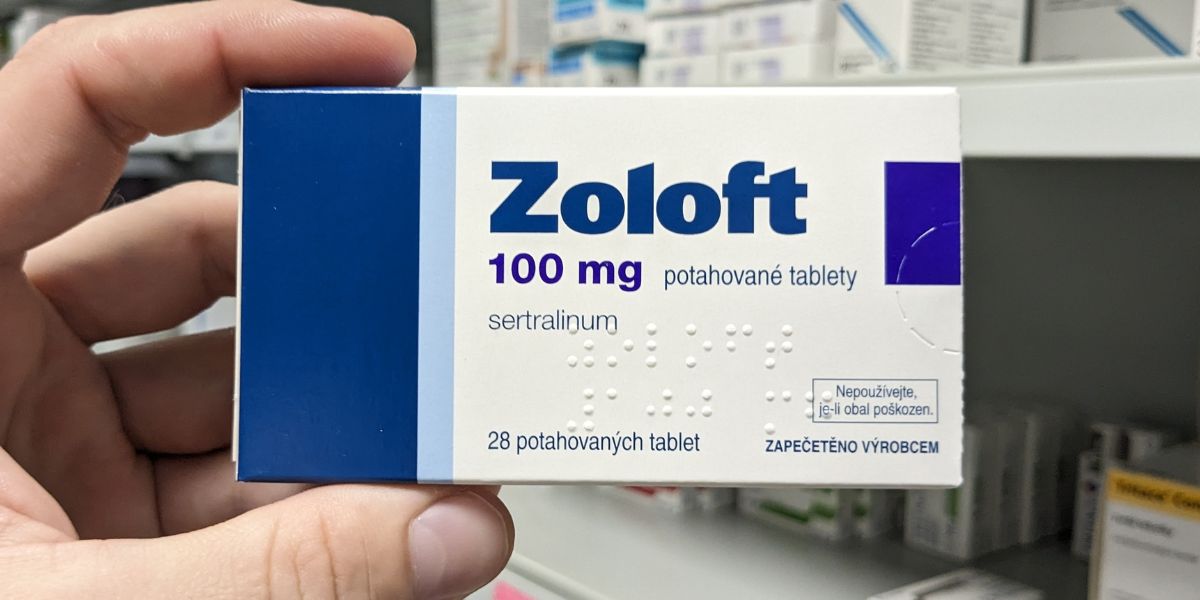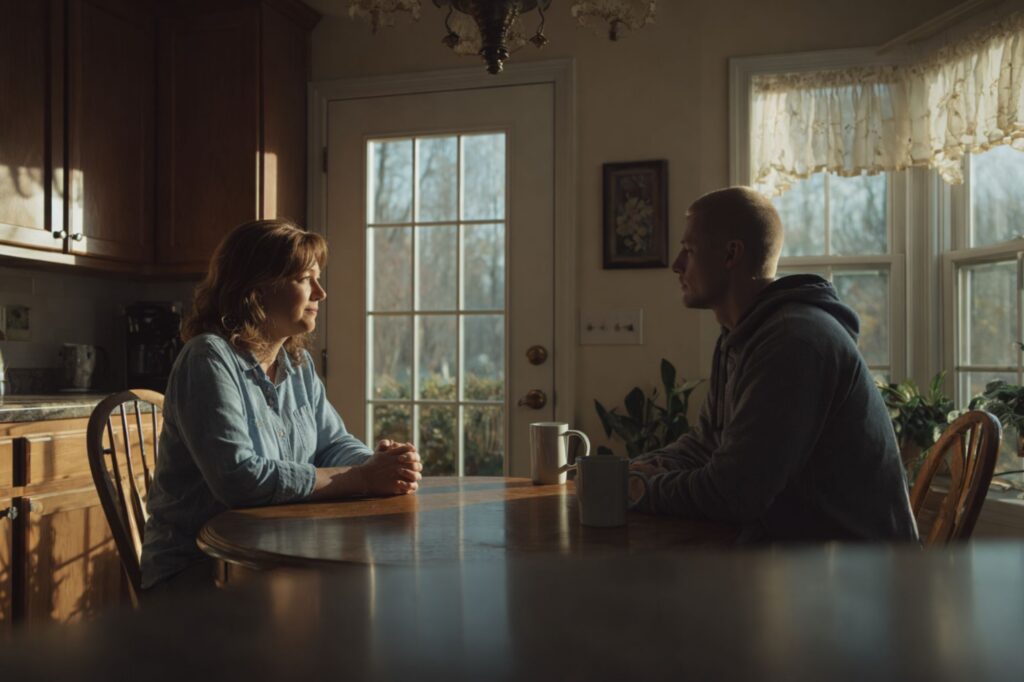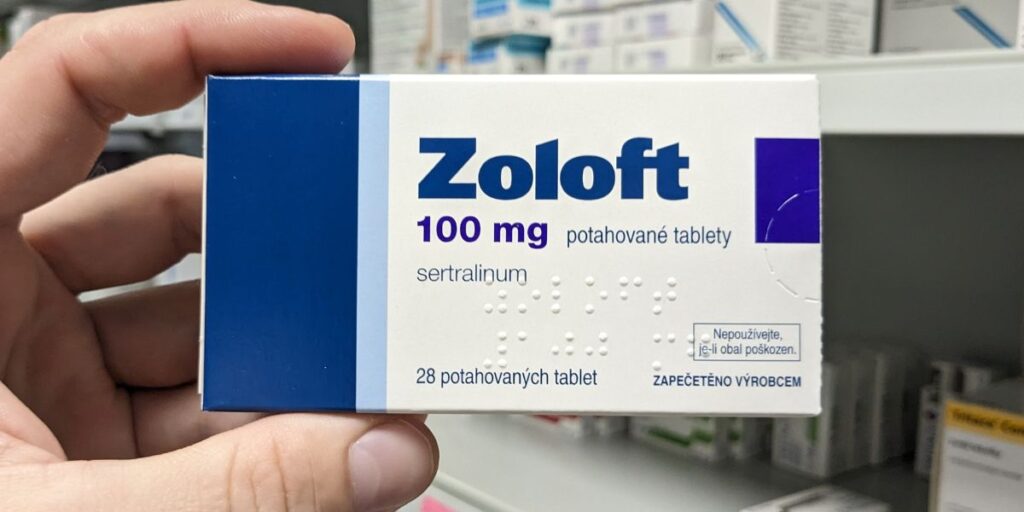
Welcome to the realm of mental health, where Zoloft and weed are like the daily conversational peanut butter and jelly. Unlike your usual sandwich combo, these two aren’t always the best fit though. Here we are to solve the riddles by combining some sober observations with a bit of comedy. So get ready for an amazing ride and buckle up!
Key Takeaways
- Mixing cannabis with Zoloft (sertraline) may increase side effects like drowsiness, dizziness, and impaired concentration, as both substances can affect the central nervous system.
- Using weed with an antidepressant like Zoloft may complicate treatment for anxiety or depression, as cannabis can sometimes intensify symptoms rather than relieve them.
- Before combining cannabis with any medication, including Zoloft, it’s essential to consult a healthcare provider to assess possible risks and ensure safe, effective treatment for mental health conditions.
Table of Contents
The Weed Chronicles: An Individual Plant with Character
Ah, marijuana, the plant generating headlines since before the internet came of use. Often referred to as weed, cannabis comprises molecules such as THC (tetrahydrocannabinol) and CBD (cannabidiol) which interact with the endocannabinoid system of the brain. Stated differently, it’s a plant designed to help you relax or induce laughter akin to that of a schoolchild.
Doctors frequently write prescriptions for medical marijuana to treat pain management, anxiety, and depression as well as other ailments. Remember, though, weed is not only leisure time entertainment. Every now and then it can induce munchies, anxiety, or paranoia. Yes, you inhaled those last night’s potato chips. Point the finger towards the marijuana. One should know about their limitations and how their body reacts to them.
The legal scene around marijuana is fascinatingly always shifting. While some places are not quite here yet, others roll out the green carpet. Always check your local laws before lighting.
Zoloft and Weed: An Interaction Story Two – Serotonin Syndrome
Let us now turn now to the main course: the interactions between Zoloft and weed. Imagine your brain as a busy city where Zoloft and weed are two visitors negotiating. They might occasionally step on each other’s toes and other times they get along perfectly.
Combining Zoloft and marijuana can intensify side effects and drug interactions including confusion, vertigo, and poor judgment. When you consume marijuana, it can alter your mental and emotional states, and using it alongside Zoloft can increase the risk of these side effects, potentially leading individuals to misjudge the efficacy of their prescribed treatments. It’s like turning up the volume on your favorite song too high; things could become overwhelming.
Still, everyone has different brain chemistry. While some would find using marijuana with Zoloft to be benign, others could find it to cause problems. Before combining these two, you really should see a healthcare provider.
The Science Driving the Buzz
Let us discuss science now! Selective serotonin reuptake inhibitors (SSRIs), such as Zoloft, play a crucial role in treating depression and anxiety disorders. When Zoloft and weed collide, they both influence brain neurotransmitters. Zoloft raises serotonin; THC from marijuana can raise dopamine levels. It’s like a neurotransmitter party, and occasionally parties can spiral out of control.
Unpredictable results from this interaction can arise. While some would get more anxiety, others may feel especially euphoric. Knowing these possible results will enable you to decide on your path of recovery with wisdom.
Furthermore, current studies keep investigating the interactions among these drugs. Like detectives, scientists help to solve the riddles of the mind, guaranteeing improved mental health results.
Increased Anxiety and Panic Attacks: Psychological Risks Explored
Mixing Zoloft and weed can be like throwing a wrench into the delicate machinery of your brain. When you combine these two substances, you risk disrupting the balance of neurotransmitters, leading to increased anxiety and panic attacks. Imagine your brain as a finely tuned orchestra, with each neurotransmitter playing its part. Introducing weed into the mix can be like adding a rogue musician who plays out of sync, causing chaos and confusion.
For some, the combination of Zoloft and weed can lead to heightened anxiety symptoms, making it difficult to relax or feel at ease. Panic attacks can also become more frequent and intense, turning what should be a calming experience into a nerve-wracking ordeal. It’s like trying to enjoy a peaceful day at the beach, only to be caught in a sudden storm.
Understanding these psychological risks is crucial for anyone considering mixing Zoloft and weed. By being aware of the potential for increased anxiety and panic attacks, you can make more informed decisions about your mental health treatment. Remember, your brain’s balance is delicate, and maintaining it is key to your well-being.
Impaired Therapeutic Effectiveness: Understanding the Impact on Treatment
Mixing Zoloft and weed can also throw a wrench into the effectiveness of your treatment plan. When taken as prescribed, Zoloft can help alleviate symptoms of anxiety and depression, acting as a reliable ally in your mental health journey. However, introducing weed into the equation can reduce Zoloft’s therapeutic effectiveness, leading to a range of negative consequences.
Think of Zoloft as a diligent worker, steadily building a foundation of mental stability. When you mix Zoloft with weed, it’s like adding a distraction that pulls the worker away from their task, resulting in a shaky foundation. The effects of Zoloft can be diminished, making it harder to achieve the desired relief from anxiety and depression symptoms.
This impaired effectiveness can lead to a frustrating cycle where you feel like you’re not making progress in your treatment. It’s like trying to fill a leaky bucket – no matter how much effort you put in, the results are never quite what you hoped for. Understanding the impact of mixing Zoloft and weed on your treatment can help you make more informed choices and ensure that your path to recovery remains steady and effective.
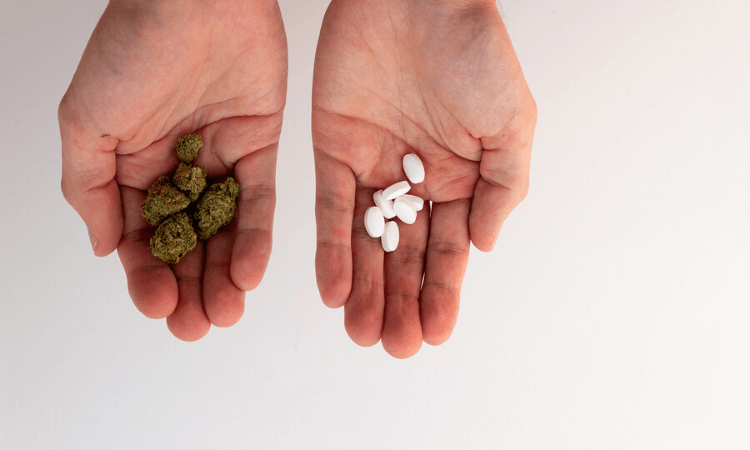
Adverse Effects of Mixing Zoloft and Weed
Mixing Zoloft and weed can be like throwing a wild party in your brain, but not the fun kind. The combination can lead to a range of adverse effects that might make you wish you had stayed home. For starters, you might experience an increased heart rate, which can feel like your heart is trying to run a marathon without your permission. Panic attacks and anxiety symptoms can also crash the party, leaving you feeling more stressed than relaxed.
One of the more serious gatecrashers is serotonin syndrome, a potentially life-threatening condition caused by excessive levels of serotonin in your body, and its side effects. This can lead to symptoms like agitation, confusion, rapid heart rate, and even seizures. It’s like your brain’s neurotransmitters are having a chaotic rave, and nobody’s in control.
Additionally, mixing Zoloft and weed can impair your cognitive function. You might find it difficult to concentrate or remember things, turning simple tasks into Herculean efforts. So, before you decide to mix Zoloft and weed, consider the potential adverse effects and think twice about inviting these unwanted guests to your brain’s party.
THC and Zoloft Interactions
THC, the psychoactive compound in marijuana, is like the life of the party, but when it interacts with Zoloft, things can get a bit out of hand. THC can increase the levels of serotonin in your brain, which might sound like a good thing, but it can actually lead to increased anxiety and panic attacks. It’s like adding too much spice to your favorite dish – a little can enhance the flavor, but too much can make it unbearable.
Moreover, THC can slow down the metabolism of Zoloft, leading to higher levels of the medication in your body. This can amplify the side effects of Zoloft, making you feel nauseous, dizzy, and giving you a dry mouth that feels like you’ve been wandering in a desert. It’s a delicate balance, and when THC tips the scales, the results can be uncomfortable at best and dangerous at worst.
Understanding these interactions can help you make more informed decisions about your mental health treatment. So, before you mix Zoloft and weed, consider the potential interactions and how they might affect your journey to recovery.
Can I Smoke Weed on Zoloft?
The short answer? It’s not recommended. Smoking weed on Zoloft can interfere with the medication’s effectiveness and increase the risk of side effects. Instead of finding the relaxation you seek, you might end up with increased anxiety and panic attacks, turning your chill session into a stressful ordeal.
Additionally, smoking weed on Zoloft can impair your cognitive function, making it harder to think clearly and remember things. It’s like trying to navigate through a fog – everything becomes a bit more challenging. And let’s not forget the risk of serotonin syndrome, a potentially life-threatening condition that can occur when serotonin levels in your body get too high.
If you’re taking Zoloft and considering using marijuana, it’s crucial to talk to your doctor first. They can help you weigh the potential risks and benefits, ensuring that your treatment plan remains effective and safe. Remember, your mental health is a priority, and making informed decisions is key to your recovery journey.
Expert Professional Advice: Weighing in
Regarding Zoloft and weed, professional advise is quite valuable. Post-traumatic stress disorder (PTSD) is often treated with medications like Zoloft and weed, which can alleviate symptoms but also have potential side effects and interactions. By means of research and experience, psychiatrists and therapists can offer insights that guide your decisions.
Many times, experts stress the need of keeping open contact with your healthcare provider. Tell your doctor straight forwardly whether you are thinking about using marijuana while on Zoloft. They can make sure your treatment plan stays successful and help you on possible contacts.
Within the realm of mental health, knowledge is power. Understanding more will help you to negotiate your road of recovery.
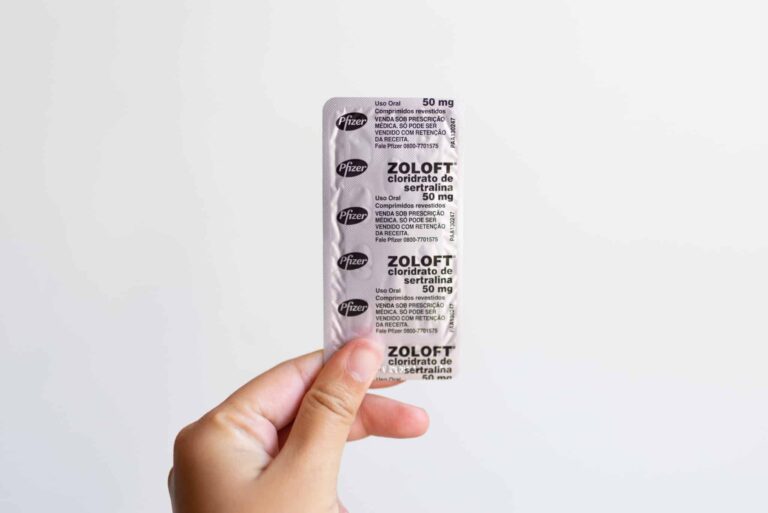
Legal Concerns: Negotiating the Medical Marijuana Landscape
Ah, the legalities of weed. Different places have a patchwork quilt of rules. Whether you live in a no-tolerance zone or a city that welcomes marijuana use, you must keep educated.
Legal questions and legal status affect medical advice in addition to where you might light up. Local laws and the body of evidence would cause doctors to view things differently. For those managing anxiety disorders, it’s crucial to understand the potential risks and side effects of smoking weed while on medications like Zoloft.
Being current is absolutely vital as laws change. Knowing helps you to make decisions that fit your legal obligations as well as your recovery.
Holistic Treatment Approaches
When it comes to managing anxiety disorders, obsessive-compulsive disorder (OCD), and post-traumatic stress disorder (PTSD), a holistic approach can be a game-changer. Imagine treating your mind, body, and spirit as a harmonious trio, each playing a vital role in your overall well-being. This approach can include a variety of practices that work together to create a balanced and healthy lifestyle.
Mindfulness and meditation practices are like the mental gym for your brain, helping to reduce stress and anxiety. Picture yourself sitting in a serene environment, focusing on your breath, and letting go of the day’s worries. Yoga and tai chi can also be your go-to activities for promoting relaxation and balance. These ancient practices not only stretch your muscles but also calm your mind, making you feel like a well-oiled machine.
Herbal supplements, such as St. John’s Wort and passionflower, can be the natural mood boosters you need. Think of them as nature’s little helpers, supporting your mood regulation without the side effects of traditional medications. Aromatherapy, using essential oils like lavender and chamomile, can turn your home into a spa-like sanctuary, promoting relaxation and helping you unwind after a long day.
Nutritional counseling is another crucial aspect of a holistic approach. A balanced diet can do wonders for your mental health, providing the nutrients your brain needs to function optimally. By incorporating these holistic approaches into your treatment plan, you can reduce your reliance on medication and develop a more comprehensive understanding of your mental health.
Medication Management
When it comes to treating anxiety disorders, OCD, PTSD, and depression, medication management is like the backbone of your treatment plan. Selective serotonin reuptake inhibitors (SSRIs) like Zoloft are commonly prescribed to help manage symptoms, but it’s essential to use them effectively and safely.
Regular monitoring of medication side effects and adjusting dosages as needed is crucial. Think of it as fine-tuning a musical instrument; you want to hit the right notes without causing any discord. Combining medication with therapy, such as cognitive-behavioral therapy (CBT), can enhance treatment outcomes. It’s like having a double-edged sword in your arsenal, tackling mental health issues from multiple angles.
Educating patients on the potential risks and benefits of medication, including the risk of serotonin syndrome, is vital. Knowledge is power, and understanding what you’re putting into your body can help you make informed decisions. Encouraging open communication about medication use, including any concerns or questions, ensures that you’re not navigating this journey alone.
By working closely with a healthcare provider, you can ensure that your medication is managed effectively and safely, reducing the risk of adverse effects. It’s like having a trusted co-pilot guiding you through the turbulence of mental health treatment.
Investigating Other Avenues as Alternatives to Weed
Although some people turn to marijuana as their preferred choice, others have substitutes, alternative treatments in case they want to avoid combining it with Zoloft. From herbal supplements to mindfulness techniques, the choices are rather large.
To ground your mind, think about yoga or meditation. Without running the danger of drug interactions, these techniques help one to relax and experience mental clarity.
Additionally soothing are herbal treatments including lavender or chamomile. Still, always see your doctor before adding fresh components to your program.
Pursuing Healing and Balance
Pursuing healing and balance is a lifelong journey that requires commitment, patience, and self-awareness. When managing anxiety disorders, OCD, PTSD, and depression, it’s essential to prioritize self-care and develop healthy coping mechanisms.
Engaging in regular exercise, such as walking or jogging, can be a fantastic way to reduce stress and anxiety. Imagine the endorphins flowing through your body, lifting your mood and making you feel more energized. Practicing gratitude and positive thinking can shift your focus away from negative thoughts, helping you see the silver lining in every situation.
Building a support network of friends, family, and mental health professionals is like having a safety net to catch you when you fall. Engaging in creative activities, such as art or music, allows you to express your emotions and promote relaxation. It’s like giving your mind a break from the daily grind, letting your creativity flow freely.
Prioritizing sleep and establishing a consistent sleep schedule is crucial for supporting mental health. Think of sleep as the reset button for your brain, helping you wake up refreshed and ready to tackle the day. By prioritizing self-care and developing healthy coping mechanisms, you can reduce your symptoms and improve your overall quality of life.
In conclusion, your path to recovery is uniquely yours. By exploring holistic treatment approaches, managing your medication effectively, and pursuing healing and balance, you can navigate the complexities of mental health with confidence and clarity. Remember, professional guidance and self-awareness are your best allies on this journey. Trust yourself, listen to your body, and prioritize your well-being. With the right tools and support, you can thrive on your road to recovery.
Your Individualized Path of Recovery
In the scheme of recovery, Zoloft and weed are only two players. Your path is especially yours and full of decisions that write your mental health story.
Remember the value of professional direction as you investigate these choices. Your doctor is a great ally who guides you across the complexity of mental health treatments.
Trust your body and yourself ultimately. See its signals and give your health top priority. You will flourish on your road to recovery with the correct instruments and help.
Dr. Mitchell G. Cohen is a board-certified Internal Medicine specialist with over 34 years of experience in patient-centered healthcare. A graduate of Hahnemann University School of Medicine, Dr. Cohen completed his internship at the University Health Center of Pittsburgh, where he gained invaluable hands-on experience. He is also a certified addiction specialist, holding membership with the American Society of Addiction Medicine (ASAM).
Currently based in Nashua, NH, Dr. Cohen is affiliated with Saint Joseph Hospital, where he provides comprehensive care focusing on both internal medicine and addiction treatment. His expertise includes prevention, diagnosis, and management of adult diseases, as well as specialized care for individuals facing substance use disorders.
Dr. Cohen is committed to fostering open communication, ensuring his patients are fully informed and empowered to make confident decisions about their health and treatment options.

MD Mitchell Grant Cohen
Dr. Mitchell G. Cohen is a board-certified Internal Medicine specialist with over 34 years of experience in patient-centered healthcare. A graduate of Hahnemann University School of Medicine, Dr. Cohen completed his internship at the University Health Center of Pittsburgh, where he gained invaluable hands-on experience. He is also a certified addiction specialist, holding membership with the American Society of Addiction Medicine (ASAM).
Currently based in Nashua, NH, Dr. Cohen is affiliated with Saint Joseph Hospital, where he provides comprehensive care focusing on both internal medicine and addiction treatment. His expertise includes prevention, diagnosis, and management of adult diseases, as well as specialized care for individuals facing substance use disorders.
Dr. Cohen is committed to fostering open communication, ensuring his patients are fully informed and empowered to make confident decisions about their health and treatment options.
- MD Mitchell Grant Cohen
- MD Mitchell Grant Cohen
- MD Mitchell Grant Cohen
- MD Mitchell Grant Cohen
- MD Mitchell Grant Cohen
- MD Mitchell Grant Cohen
- MD Mitchell Grant Cohen
- MD Mitchell Grant Cohen
- MD Mitchell Grant Cohen
- MD Mitchell Grant Cohen
- MD Mitchell Grant Cohen
- MD Mitchell Grant Cohen
- MD Mitchell Grant Cohen
- MD Mitchell Grant Cohen
- MD Mitchell Grant Cohen
- MD Mitchell Grant Cohen
- MD Mitchell Grant Cohen
- MD Mitchell Grant Cohen
- MD Mitchell Grant Cohen
- MD Mitchell Grant Cohen
- MD Mitchell Grant Cohen
- MD Mitchell Grant Cohen
- MD Mitchell Grant Cohen
- MD Mitchell Grant Cohen
- MD Mitchell Grant Cohen
- MD Mitchell Grant Cohen
- MD Mitchell Grant Cohen
- MD Mitchell Grant Cohen
- MD Mitchell Grant Cohen
- MD Mitchell Grant Cohen
- MD Mitchell Grant Cohen
- MD Mitchell Grant Cohen
- MD Mitchell Grant Cohen
- MD Mitchell Grant Cohen
- MD Mitchell Grant Cohen
- MD Mitchell Grant Cohen
- MD Mitchell Grant Cohen
- MD Mitchell Grant Cohen
- MD Mitchell Grant Cohen
- MD Mitchell Grant Cohen
- MD Mitchell Grant Cohen
- MD Mitchell Grant Cohen
- MD Mitchell Grant Cohen
- MD Mitchell Grant Cohen
- MD Mitchell Grant Cohen
- MD Mitchell Grant Cohen
- MD Mitchell Grant Cohen
- MD Mitchell Grant Cohen
- MD Mitchell Grant Cohen
- MD Mitchell Grant Cohen
- MD Mitchell Grant Cohen
- MD Mitchell Grant Cohen
- MD Mitchell Grant Cohen
- MD Mitchell Grant Cohen
- MD Mitchell Grant Cohen
- MD Mitchell Grant Cohen
- MD Mitchell Grant Cohen
- MD Mitchell Grant Cohen
- MD Mitchell Grant Cohen
- MD Mitchell Grant Cohen
- MD Mitchell Grant Cohen
- MD Mitchell Grant Cohen
- MD Mitchell Grant Cohen
- MD Mitchell Grant Cohen
- MD Mitchell Grant Cohen
- MD Mitchell Grant Cohen
- MD Mitchell Grant Cohen
- MD Mitchell Grant Cohen
- MD Mitchell Grant Cohen
- MD Mitchell Grant Cohen
- MD Mitchell Grant Cohen
- MD Mitchell Grant Cohen
- MD Mitchell Grant Cohen
- MD Mitchell Grant Cohen
- MD Mitchell Grant Cohen
- MD Mitchell Grant Cohen
- MD Mitchell Grant Cohen
- MD Mitchell Grant Cohen
- MD Mitchell Grant Cohen
